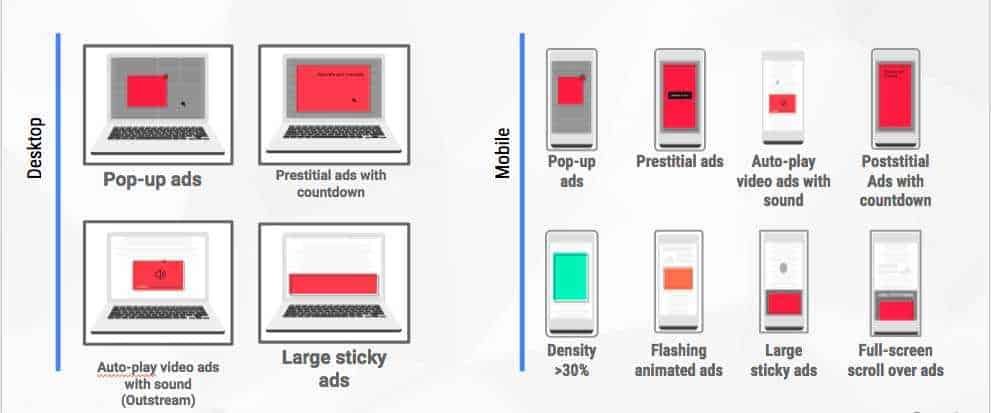With the launch of Chrome 71 last December, Google began filtering ads in North America and Europe into pages that displayed abusive ads.
Today, Google has announced that it will extend the ad filter to the rest of the world from 9 July to 2019.

In ad filtering, Chrome follows the standards set by Google for (guess what) the best ads. So the program browsing of Google can determine whether a website is displaying abusive ads or not.
Examples of abusive ads include pop-up ads, autoplay videos with sound, banner ads that cover the entire screen and the big sticky ads. A full list of the least abusive ads based on Google's Best Ads standards can be found below.

Today, the Coalition for Better Ads announced that it will expand its Better Ads standards Standards) worldwide from July 9, '19. As Chrome follows the same standards, Google decided to extend the feature to browser on the same date to remain aligned with the Coalition.
For page administrators whose sites repeatedly display such types of ads, Google will alert them through Ad Experience Report. Administrators will then have 30 days to solve the problems, or Chrome will start to cut ads on the site.
“Chrome's enforcement of the Coalition for Better Ads standards has inspired many website owners to improve the ad experience on their pages in a way that benefits users", Reports the Press release of Google.
In the US, Canada and Europe, website owners have made changes to their page ads. As of January 1, 2019, two-thirds of all publishers who did not comply with the Better Ads Standards are now in good standing. In addition, out of the millions of sites we have browsed to date, we filter ads by less than 1%.
_______________________________
- Chrome 15 February: End of annoying ads
- DuckDuckGo: Google even monitors you as anonymous or inactive users
- Edge with Chromium: What to Expect?
- Sundar Pichai: Our mission is to protect privacy





